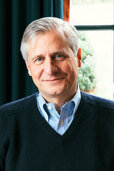weekly column
|
Each week, find a commentary on something connected to verses of Torah or another source of wisdom
|
|
Each week, find a commentary on something connected to verses of Torah or another source of wisdom
|
 Wisdom Wherever You Find it The moral utility of history lies in its capacity to remind us of our duty to stand vigilant against and to take action against perennial and pernicious forces that lead to discrimination, to genocide, to hunger, oppression, and injustice. Jon Meacham My little black book of quotations has multiple entries from multiple people. Often it is because a speech or essay contains more than one observation that demanded residence in my memory. Sometimes it is because a person has an astonishingly consistent talent for sharing insight. Jon Meacham is one of those people, and even though it has been a mere four months since he provoked one of these columns, he becomes the first repeat contributor because this quotation gobsmacked me. I have written before about how history is a human construct that chooses among a myriad of events to create a narrative from the past to inform the present. (I will pause while you reread that.) That notion does not make history illegitimate as a concept or a discipline. It only makes it less objective. If you need evidence of how history and its lessons can be manipulated to change fiction to fact, I will point you to the belated awakening to the fabrications of the “Lost Cause” explanation of the Civil War. Until very recently, the capital of my home commonwealth, Richmond, Virginia, boasted of the prestigious Monument Avenue over which enormous statues of Confederate war heroes presided. They were promoted, erected, maintained, and protected by descendants of the Old South who rejected the legal definition of someone who conducts armed insurrection against the United States government: traitor. The sore losers of the Confederacy, in addition to including in textbooks from which Virginia schoolchildren learned the redefinition “the war of Northern aggression,” sought to make noble cause out of the attempt to keep human beings enslaved for both economic and racial purposes. In that context, I am inspired by the observation of Mr. Meacham that history has a moral utility. “Utility” is ultimately practical. But “moral” is all about values. The narrative we construct out of the loose pieces of the past is used to justify the present and guide our path to tomorrow and the next day. Right now in our country we are witnessing a scramble to use the tiles and stones of yesterday to create a mosaic that represents today. For someone who considers themselves at least modestly informed, the picture that emerges is enlightening not only for what is included but also for what was left in the scrap heap. That is the case with the folks who are digging their heels into the contemporary manifestations of “Lost Cause” thinking, imagining a great America past that can be great again. It is also the case with folks who have bet the farm on various theories about how the flaws of the past have become systemic and must therefore be plucked out of today’s narrative and ground to dust. In both cases – and many others – the utility of history is to create a today of their choosing. If I had hope of a constructive conversation (and let me admit that the lack of such a hope is my problem, not theirs), I’d love to ask about the values being served by that utility and what it means for people who do not subscribe. It is worth noting that Meacham’s formulation came almost incidentally (in an unbelievably well-crafted presentation) as he introduced a panel to pay tribute to Elie Wiesel on the occasion of the dedication of a tribute to him in the National Cathedral in Washington, DC. The cathedral has quite literally constructed a mosaic out of selected tiles and stones to create a narrative. It has also been reevaluating some of those pieces and removing or replacing ones that tell a story that does not represent their values. I take a small amount of pride that I was able to move past being impressed by the phrase “the moral utility of history” to what followed it in Meacham’s formulation. It was a statement in the midst of his acknowledgment of the failings of the church (not just Episcopal) regarding outsiders (not only but especially Jews), and of the United States government in acting on behalf of the victims of the Holocaust (not just but including Elie Wiesel). The moral utility of history, please notice, is to caution us to stance and action consistent with our values: preventing discrimination, genocide, hunger, oppression, and injustice. I don’t think he meant it as an exhaustive list, but I’d be pretty happy to start with those successes. As I think of history in the context of this insight, I hope I can remember to give up the fruitless arguments about what is relevant or not, what is accurate or manipulated, what is important or negligible. Everything is both. At least as important is that moral utility. What are the values any telling of history promotes, and what does that telling do to get them realized.
0 Comments
Leave a Reply. |
Archives
October 2023
Categories |